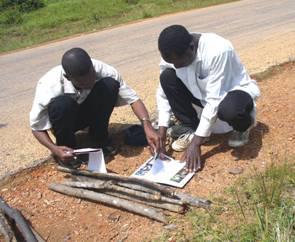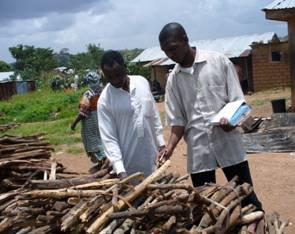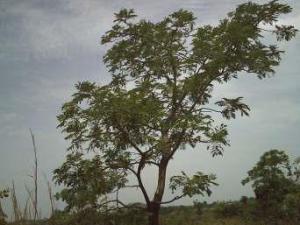Adams Chaskda
Other projects
28 Nov 2011
Increasing Urbanization towards the Amurum Forest Reserve and the Jos Wildlife Park; Where Do We Draw the Line to Protect Local Fauna?
This work seek to identify those indigenous plant species most utilised for fuel-wood consumption on the Jos-Plateau through series of market surveys. The ecological role played by such species will also be measured by recording insects, birds and mammalian species utilising such plants as food, perching and nesting substrate.

Identification of fuel-wood plant species.
Local felling of trees for fire wood has been recognised as a major factor responsible for environmental degradation in arid and semi-arid parts of Africa. In Nigeria it is documented that 80 % of the populace depends on fuel wood and it is estimated that by the year 2010 the highest quantity of wood would still be consumed as fuel wood, this will amount to 156, 634, 000 metric tons (Ameibenomo 2002; Fuwape 2003).

Random selection of fuel-wood bundles for identification.
More worrisome is the fact that utilised plant species are recorded to vary in their combustion efficiency thereby raising the fear that certain plant species could be threatened or most have even gone locally extinct with serious implications on local fauna. To combat environmental problems emanating from fuel-wood usage and mining activities, the Plateau State Environmental Agency and NGO's have been involved in tree planting projects over the past years.

Parkia biglobosa.
However, little attention has been given to local flora and the animal species they support. In some instances, exotic plant species have been replanted. Thus, this work seek to identify those indigenous plant species most utilised for fuel-wood consumption on the Jos-Plateau through series of market surveys. The ecological role played by such species will also be measured by recording insects, birds and mammalian species utilising such plants as food, perching and nesting substrate.
This work concludes with a seminar that will involve local communities around the study areas, fuel wood marketers, government agencies and non-governmental organisations to deliberate on findings and make appropriate recommendations. This way, government agencies and NGO's involved in tree planting campaigns in this area, will be more focused in regard to which tree species should be planted. Consequently, a number of indigenous plant species could be saved from local extinction and the animal species that depend on them.
The project also compliments conservation efforts at the A.P. Leventis Ornithological Research Institute (APLORI). Especially, in regard to the making of fuel efficient stove aimed at reducing fuel-wood usage and giving natural habitats the opportunity to recover.